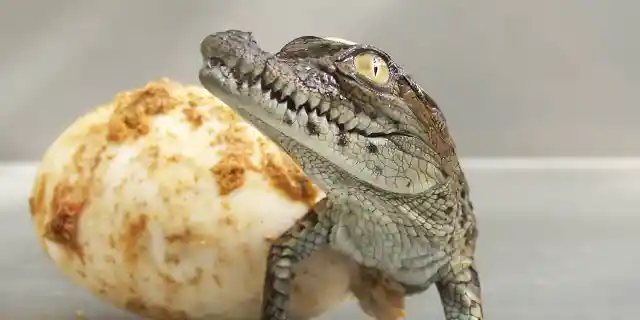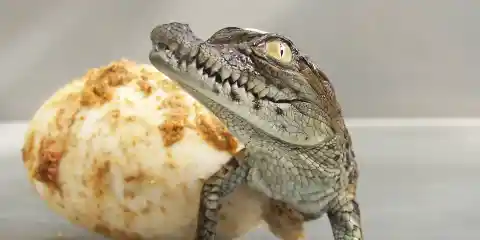

If you live in Florida, you may have seen a crocodile or two in your lifetime. If you don’t, you probably still know that they are vicious creatures not to be messed with. Regardless, in general, there are a good number of things that people don’t know about them. Recently, PPcorn told you some crazy facts about the crocodile. Here’s the second half of the bunch.
Number Eight: They Have Lots of Teeth. The crocodile has a total of 48 teeth: 24 on the bottom, and 24 on the top. They often use their teeth to catch stones to help them with their digestion.
Number Seven: They Get Long. When domesticated, crocodiles can reach 5 feet in length in just their first year of living. While a person of that height isn’t that intimidating, a crocodile certainly is.
Number Six: Their Eyes Bubble. It’s true. When a crocodile eats, their eyes often bubble. Over time, this has led people to believe that they feel sad about the food they kill, but this, of course, is false.
Number Five: Their Hearts Are Complicated. No, we don’t mean that they are hard to read, or break a lot of people’s hearts. We mean that, similar to birds, the crocodile has a four chambered heart. That being said, when they are underwater, their hearts act like a three-chambered heart. As a result, they can swim underwater for longer periods of time.
Number Four: They’re Idolized. Well, sometimes. In some tribes, especially those in New Guinea, people scar themselves in such a way so that they themselves look like they have scales.
Number Three: They’re Professional Stalkers. With the ability to float with just their eyes and nostrils exposed, the crocodile has an easier time sneaking up on their prey without being detected. Talk about creepy!
Number Two: Their Eyes Give Them Power. Because the eyes of a crocodile are very close together and facing forwards, they have the ability to accurately decipher distances and the positions of things around them.
Number One: Their Scales Tell a Story. Scientists will often be able to determine the health of a certain body of water in which crocodiles inhabit by taking a scale sample from their bodies. They are able to deduce such things as pollution, fish population, and more through this method.